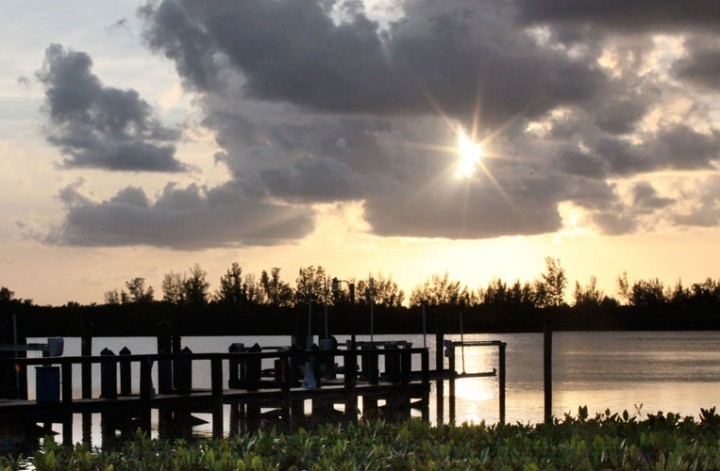
SEBASTIAN — A fertilizer ordinance has been implemented in communities along the Indian River Lagoon, including Sebastian, and the fertilizer blackout season (AKA The rainy season), Jun. 1-Sept.30, is coming around again. But, says Indian River County Environmental Specialist Alexis Thomas, there are still some homeowners who are uncertain how to properly care for their lawns, and a few remaining retailers who still sell, and lawn care workers who still use, non-compliant products during the blackout period.
Thomas addressed the Sebastian City Council earlier this month to review ordinance basics and provide seasonal tips.
One of her most important tasks is educating lawn care providers, fertilizer sellers, heavy fertilizer users such as golf courses and farms, and the general public about the ordinance: Its does and don’ts, and why the 4-month ban is so important.
The rainy season is a period of special vulnerability for the endangered lagoon, because it is then that heavy rains wash excess nutrients from fertilizers, notably nitrogen and phosphorous, into the lagoon, to the detriment of the plants and animals therein.
This, she said, is why it is now illegal to use any fertilizer containing nitrogen and/or phosphorous on either turf grass or landscape plants during June, July, August or September.
Thomas explained that “Florida-friendly yard products containing iron or other micronutrients will help maintain a healthy, green yard.”
She provided a partial list of compliant products and locations where they are available, which include most yard and garden supply stores, and suggested that, during the ban, residents can supplement nutrient-deficient soil with compost or other soil amendments, and noted that Florida-friendly or native plants automatically require less maintenance.
After the ban, Thomas continued, “just fertilize twice a year, in October, which is near the end of the growing season, and in April, at the start of the growing season. And,” she emphasized, “do not fertilize before a rain event.”
Contrary to popular belief, “rain does not ‘set in’ fertilizer, it just washes it away.”
Thomas says that, for the most part, even the fertilizer users who are listed as exempt from the ban – bona fide farm or ranch operators; golf courses; athletic fields in public parks and schools; growers of vegetables gardens and edible-fruit trees – are regulated: all commercial and institutional fertilizer applicators are required to successfully complete the FDEP’s 6-hour training program, “Florida-friendly Best Management Practices for Protection of Water Resources by the Green Industries.”
Owners of any business which may apply fertilizer must successfully complete this training, and must now “carry in their possession evidence of certification when applying fertilizer.”
Sebastian’s complete ordinance can be found HERE.



